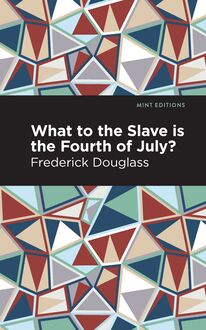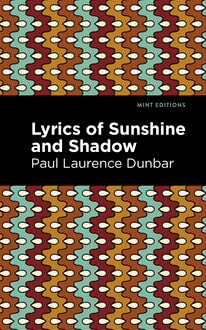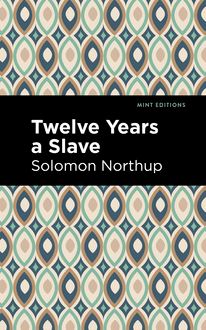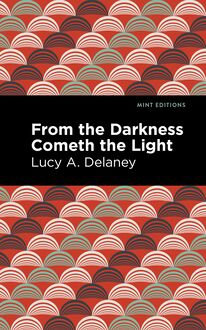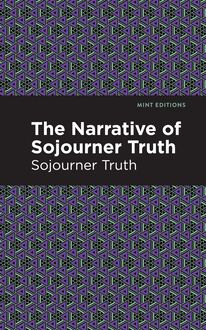-
 Univers
Univers
-
 Ebooks
Ebooks
-
 Livres audio
Livres audio
-
 Presse
Presse
-
 Podcasts
Podcasts
-
 BD
BD
-
 Documents
Documents
-
- Cours
- Révisions
- Ressources pédagogiques
- Sciences de l’éducation
- Manuels scolaires
- Langues
- Travaux de classe
- Annales de BEP
- Etudes supérieures
- Maternelle et primaire
- Fiches de lecture
- Orientation scolaire
- Méthodologie
- Corrigés de devoir
- Annales d’examens et concours
- Annales du bac
- Annales du brevet
- Rapports de stage
La lecture à portée de main
Vous pourrez modifier la taille du texte de cet ouvrage
Découvre YouScribe en t'inscrivant gratuitement
Je m'inscrisDécouvre YouScribe en t'inscrivant gratuitement
Je m'inscrisEn savoir plus
Vous pourrez modifier la taille du texte de cet ouvrage
En savoir plus

Description
Overshadowed: A Novel (1901) is a novel by Sutton E. Griggs. Published just two years after his debut novel, Overshadowed takes a different angle on the political reality of African Americans than Griggs explored in Imperium in Imperio. Taking an ironic tone, he examines the intersection of race and gender in the burgeoning Black middle-class to explore and critique the politics of liberalism and assimilation. Although Griggs’ novels were largely forgotten by the mid-twentieth century, scholars have recently sought to emphasize his role as an activist and author involved with the movement for Black nationalism in the United States. Critics since have recognized Griggs as a pioneering political figure and author whose utopian themes and engagement with contemporary crises constitute some of the era’s most radical literary efforts by an African American writer. “[T]he grain that came to life under the oak has its peculiar struggles. It must contend for sustenance with the roots of the oak. It must wrestle with the shade of the oak. The life of this isolated grain of corn is one continuous tragedy. Overshadowed is the story of this grain of corn, the Anglo-Saxon being the oak, and the Negro the plant struggling for existence.” Introducing his second novel, Griggs sets the stage for a story of perseverance, a quality possessed by both Erma Wysong and Astral Herndon. Born and raised in Richmond, Virginia, Erma and Astral are representative of the emerging Black middle class. As they each go off to college and embark on a path to a promising young adulthood, they hope to take advantage of opportunities that weren’t afforded to their parents. Secretly, however, Astral hopes to return to Richmond and win Erma’s hand in marriage, believing that time and distance will convince her that he can be more than a friend. Although their love grows stronger, Astral finds himself flooded with doubt regarding one aspect of Erma’s identity—although she was raised by Black parents, her birth father was a white man. With a beautifully designed cover and professionally typeset manuscript, this edition of Sutton E Griggs’ Overshadowed: A Novel is a classic work of African American literature reimagined for modern readers.
Sujets
Informations
| Publié par | Mint Editions |
| Date de parution | 08 juin 2021 |
| Nombre de lectures | 0 |
| EAN13 | 9781513298306 |
| Langue | English |
| Poids de l'ouvrage | 1 Mo |
Informations légales : prix de location à la page 0,0400€. Cette information est donnée uniquement à titre indicatif conformément à la législation en vigueur.
Extrait
Overshadowed
A Novel
Sutton E. Griggs
Overshadowed: A Novel was first published in 1901.
This edition published by Mint Editions 2021.
ISBN 9781513296807 | E-ISBN 9781513298306
Published by Mint Editions®
minteditionbooks.com
Publishing Director: Jennifer Newens
Design & Production: Rachel Lopez Metzger
Project Manager: Micaela Clark
Typesetting: Westchester Publishing Services
C ONTENTS A UTHOR ’ S P REFACE P ROEM I. A G IRL , P ERPLEXED II. T HE C AUSE R EVEALED BUT NOT R EMOVED III. O THER A CTORS IV. A L ADY WHO DID NOT KNOW THAT SHE WAS A L ADY V. W HAT A K ISS D ID VI. U P TO D ATE A RISTOCRACY IN A N EGRO C HURCH VII. R EV . J OSIAH N ERVE , D. D. S. VIII. H E N ARROWLY E SCAPED IX. T HE P IT IS D UG X. T HE V ICTIMS XI. M URDER ! XII. T HE V ISIT OF A P OLICEMAN XIII. B ACKWARD , THEN F ORWARD XIV. A S L EAST E XPECTED XV. A N A WFUL R ESOLVE XVI. A P OLITICAL T RICK XVII. P AVING THE W AY XVIII. J OHN W YSONG C ONFESSES XIX. A DDED S ORROWS XX. S PEAKER L ANIER XXI. T HE H ANGING XXII. W ORSE THAN D EATH XXIII. F ULL OF J OY XXIV. O PPOSING THE W EDDING XXV. E RMA AND AN A SSASSIN XXVI. N AME THE C HAPTER A FTER YOU R EAD I T XXVII. T HE F UNERAL E PILOGUE : A L AY TO THE C OMING K ING
A UTHOR ’ S P REFACE
The task assigned to the Negroes of the United States is unique in the history of mankind.
He whose grandfather was a savage and whose father was a slave has been bidden to participate in a highly complex civilization on terms of equality with the most cultured, aggressive and virile type of all times, the Anglo-Saxon.
The stupendous character of the task is apparent when it is called to mind that the civilization in which they are to work out their respective destinies is fitted to the nature of the Anglo-Saxon, because he evolved it; while, on the other hand, the nature of the Negro must be fitted to the civilization , thus necessitating the casting aside of all that he had evolved.
This attempt on the part of the infant child of modern civilization to keep pace with the hale and hearty parent thereof, has served to contribute its quota of tragedies to the countless myriads that have been enacted under the sun, since the Cosmic forces first broke forth out of night into light, and began their upward, sightless, or shall we rather say, full visioned tread in quest of the “music of the spheres” and the higher purposes of the G REAT B EYOND .
What part in the great final programme these Cosmic forces have assigned to the attempt of the Negro to journey by the side of the white man, none are yet able to say, the situation being still in process of unfoldment.
While we watch with becoming reverence and muse thereon, we catch up our lyre to sing to the memory of those slain in their name, if not by their order.
Very respectfully yours,
T HE A UTHOR
P ROEM
A farmer who is planting corn in a fertile field, halts beneath the shade of a huge oak to rest at noon.
Accidentally a grain of corn drops from his bag, finds lodgement in the soil, and in time begins to grow.
The grains that fell in the field will have their difficulties in reaching maturity.
There is the danger of too much water, of the drought, of the coming worms.
But the grain that came to life under the oak has its peculiar struggles.
It must contend for sustenance with the roots of the oak.
It must wrestle with the shade of the oak.
The life of this isolated grain of corn is one continuous tragedy.
O VERSHADOWED is the story of this grain of corn, the Anglo-Saxon being the oak, and the Negro the plant struggling for existence.
To be true to life, the story must indeed be a sombre one.
So, O VERSHADOWED is a tragedy—a story of sorrow and suffering.
Yet the gloom is enlivened by the presence of a heroic figure, a beautiful, noble girl, who stands unabashed in the presence of every ill.
O VERSHADOWED does not point the way out of the dungeon which it describes, but it clearly indicates the task before the reformer when he comes.
If you have time and inclination for such a recital—the curtain rises and the play begins.
I
A G IRL , P ERPLEXED
To-and-fro, to-and-fro, with hurried, restless tread, Erma Wysong walked her parlor floor, forgetful of the young man who sat in a corner and gazed at her, with all of his powers of sight apparently doing double duty. Her hair, slightly coarse of thread, glistening as if in pride of its extreme blackness, was combed away from a brow that was exceedingly pretty and formed a part of a head that forewarned you to expect the possessor thereof to have an intellect of a very high order. A few unruly locks of her glossy hair had escaped from the grasp confining the others backward, and were hanging forward as if to peep into her tender brown eyes so full of soul; or, to tantalize a very prettily formed nose; or, to tempt a bite from a row of pearls even and gleamingly white; or, to nestle upon a cheek the tenderness and ruddiness of which were standing invitations for gentle pressure.
Erma, nearly tall, a happy medium between the plump and the lithe, the perfection of symmetry, her whole frame a series of divinely fashioned curves, paced to and fro, her beautiful face wearing a look of mental perplexity. First her right hand and then her left tossed back with a nervous jerk the straying locks.
Astral Herndon, a tall and exceedingly handsome young man, who was paying her a call, sat in an armchair in a corner of the small room, and, with body bent forward, was looking intently at Erma, as has been stated, his entire soul ablaze with curiosity to know what had so operated upon the mind of the erstwhile winsome, laughing, merry Erma, as to cause her to break off abruptly an ordinary conversation and begin her restless journeyings to-and-fro across her parlor floor, vouchsafing to him not a word of apology or explanation, and apparently oblivious of his presence. The transition from the lively gay to the deathly sad, was so quick, so queer, so utterly inconsistent with all that he had hitherto known of Erma—it was so far from anything warranted by the rather commonplace conversation in which they had been engaged, that he was very naturally in the depths of wonderland, staring with all his might. He saw her thin, red lips quiver, as if with deep emotion. He saw repressed by a would-be secret bite of the lips, an entire flood of tears, save a truant one, that would steal its way down anyhow. He saw a clasping, a griping of the hands as though the fair one was being hurried to the verge of despair. He could, as it were, trace in her actions the progress that her mind was making toward a precipice, reluctant to go and yet impelled by some irresistible force.
Astral Herndon sat watching her, his surprise and curiosity deepening into concern and anxiety. At length, when he could bear it no longer, he arose and said in a low, sweet voice that trembled with emotion, “Erma!” Something in his voice went straight to Erma’s wandering soul, and, as though not of herself, she turned slowly around and mechanically lifted her gaze to meet the dark, glowing eyes of Astral Herndon. She felt her soul leave her with a rush and run to embrace a mate that was coming forth from the eyes before her, and she cried, “Oh! I see! Oh! I see! Oh! I see!” and unconsciously stretched out her arms toward Astral as if to receive him. Astral advanced toward Erma, but this movement on his part broke the spell and she shrank away from him and sat down.
Astral was now more mystified than ever. He vaguely felt that somehow he was intermingled with Erma’s thoughts, but as to how it had come about, or as to what was the nature of her thoughts regarding him, he was in absolute ignorance. Erma, now fully conscious of how she had been acting, vainly sought to redeem herself by an endeavor to conduct an animated conversation, not offering, however, to Astral any explanation of her seeming rudeness to him. But after a heroic struggle to keep up the conversation, she blurted out, all of a sudden, “Mr. Herndon, do you not, can you not see that I am in the deepest sort of trouble? Why do you not get up and go home?” Saying this, she fell to sobbing violently, burying her face in her hands. Astral arose and got his hat and went on tiptoe to the door. Just before he went out, he cast a look of deepest love at the weeping girl. If he had only gone to her and lifted her to a resting place on his bosom—but the U NSEEN power that ordains that two souls shall journey through earth together, also chooses, it would seem, the hallowed spot; chooses the precious and never to be forgotten moment when soul is unveiled to soul; chooses the exact degree of the development that shall exist in each at the hour of the mating.
So, the U NSEEN sent Astral forth and not to Erma’s side. As he stepped out upon the doorstep, the queen of the night wrapped his noble brow with her silver cords in wanton playfulness. The city clock was striking the hour of ten, rather dolefully, he thought. He slowly wended his way toward his home, stopping ever and anon to cast a look of love, mingled with perplexity, in the direction of Erma’s residence. “Strange, sweet girl,” he murmured softly to himself, “I thought that I knew her.” Time and again he stopped, and, looking in her direction, repeated this monologue. At last he reached home, and throughout the sleepless night uttered the self-same words.
As for Erma, she sat in the exact attitude in which he left her. The hours of the night, aided by the light of the moon, groped their way through a sleeping world. At length the birds, ere they went forth in quest of their daily bread, held their morning praise service, as if to rebuke the prayerless man. From their little hearts and throats quivering with joyous emotions, they told the God of the sparrow how glad they were that they were yet allowed to flit about in his glorious world. The sun, remembering his many unfinished tasks of the pre
-
 Univers
Univers
-
 Ebooks
Ebooks
-
 Livres audio
Livres audio
-
 Presse
Presse
-
 Podcasts
Podcasts
-
 BD
BD
-
 Documents
Documents
-
Jeunesse
-
Littérature
-
Ressources professionnelles
-
Santé et bien-être
-
Savoirs
-
Education
-
Loisirs et hobbies
-
Art, musique et cinéma
-
Actualité et débat de société
-
Jeunesse
-
Littérature
-
Ressources professionnelles
-
Santé et bien-être
-
Savoirs
-
Education
-
Loisirs et hobbies
-
Art, musique et cinéma
-
Actualité et débat de société
-
Actualités
-
Lifestyle
-
Presse jeunesse
-
Presse professionnelle
-
Pratique
-
Presse sportive
-
Presse internationale
-
Culture & Médias
-
Action et Aventures
-
Science-fiction et Fantasy
-
Société
-
Jeunesse
-
Littérature
-
Ressources professionnelles
-
Santé et bien-être
-
Savoirs
-
Education
-
Loisirs et hobbies
-
Art, musique et cinéma
-
Actualité et débat de société
- Cours
- Révisions
- Ressources pédagogiques
- Sciences de l’éducation
- Manuels scolaires
- Langues
- Travaux de classe
- Annales de BEP
- Etudes supérieures
- Maternelle et primaire
- Fiches de lecture
- Orientation scolaire
- Méthodologie
- Corrigés de devoir
- Annales d’examens et concours
- Annales du bac
- Annales du brevet
- Rapports de stage

